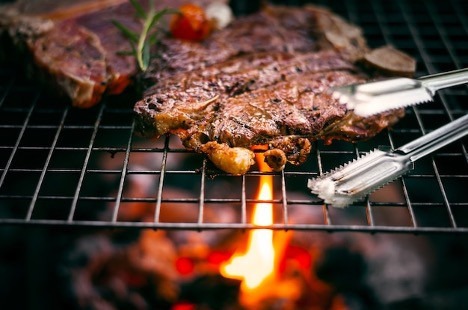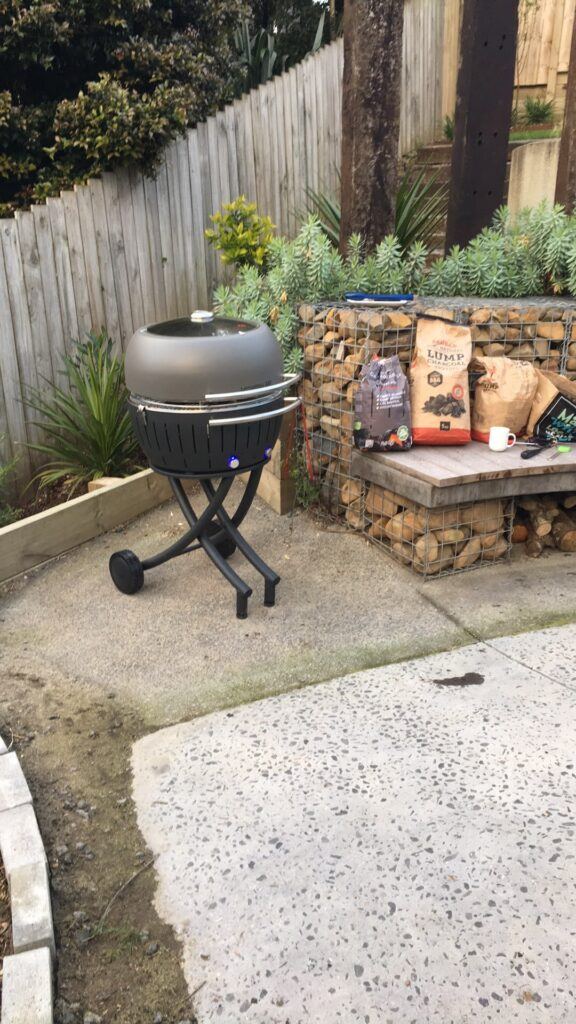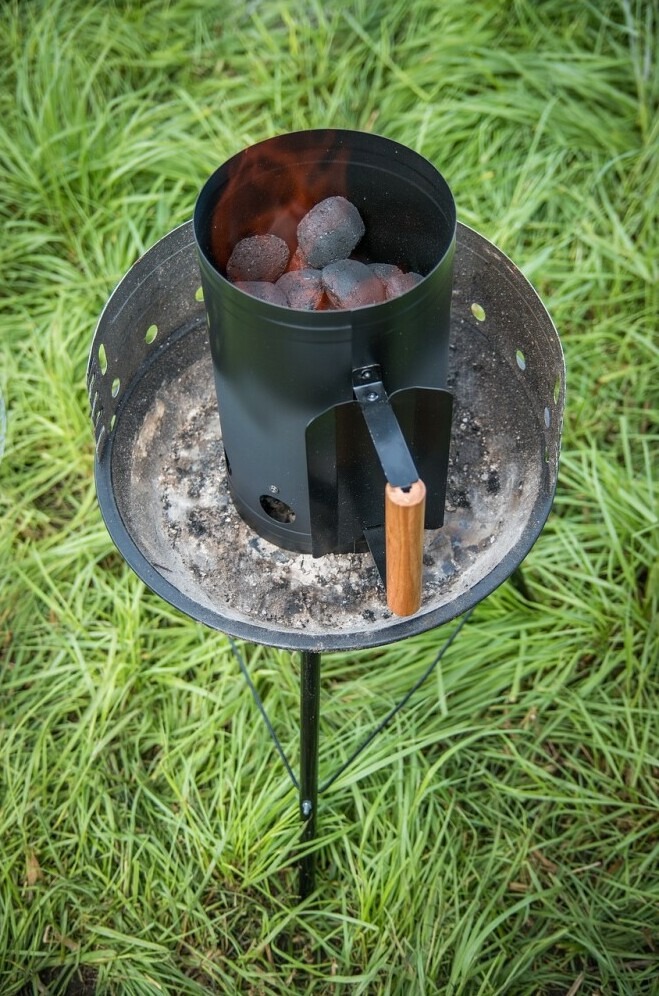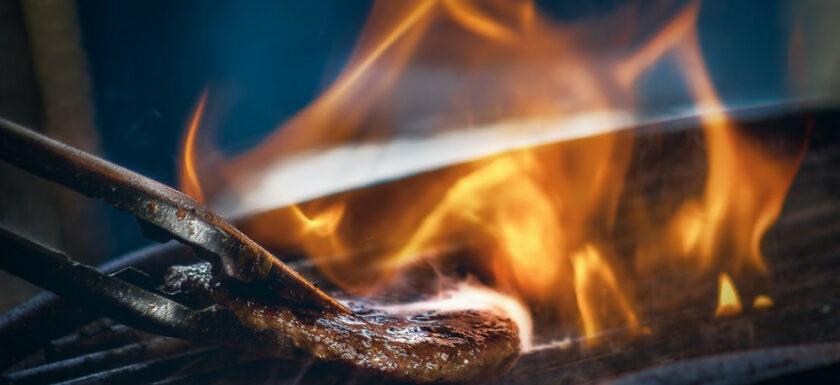Gas and Charcoal BBQs have been a staple of backyard grilling for decades, but are these power tools enough to keep harmful pollutants from going into the atmosphere and adding to our environmental concerns?
Yes, Gas BBQs emit fewer greenhouse gasses than charcoal (though it’s worth mentioning that those numbers vary depending on the type of Gas BBQ). Besides that, gas smokers are cleaner because they generate less smoke. Despite being much quieter than their charcoal counterparts, these heaters still release low-level pollutants like nitrogen oxides and particulates.
What Exactly Are Greenhouse Gasses?
Greenhouse gases, otherwise known as carbon dioxide (CO2), methane (CH4), and nitrous oxide (N2O), are all made up of carbon and hydrogen. They’re created when fuel burns, which is how charcoal and gas smokers produce them. While these gasses are naturally occurring, it’s easy to drastically increase their levels by creating a closed system that traps the gas.
Greenhouse gases are what trap heat inside the Earth’s atmosphere, and many believe that an excess of them is contributing to global warming.
The natural process of photosynthesis helps remove some of these gases from the air. Still, we’re speeding up global warming when humans take too much charcoal out of the ground and fuel sources like natural gas. Other pollutants like particulates and nitrogen oxides are associated with charcoal burning.

Ways To Reduce Your Charcoal and Gas BBQ Gas Emissions
Both charcoal and gas BBQs emit harmful gases into the atmosphere, but these can easily be reduced using products that help regulate emissions.
Depending on what you plan on cooking, you’ll have to pay attention to the types of fuel that you use to cook. Charcoal is more forgiving, meaning you can use it for anything from chicken to burgers. On the other hand, gas BBQs rely on natural gas and propane to produce heat.
1. Using A Gas Grill Cover
When it comes to environmental concerns surrounding gas and charcoal BBQs, the use of a natural gas grill cover can make a significant impact. Natural gas grills are already considered more eco-friendly than their charcoal counterparts due to lower emissions and energy efficiency. However, ensuring proper maintenance and protection of your natural gas grill with a cover can further enhance its environmental benefits.
A natural gas grill cover serves multiple purposes in promoting sustainability. Firstly, it helps to preserve the lifespan of the grill by shielding it from environmental elements such as rain, snow, and UV radiation. By prolonging the life of the grill, fewer resources are consumed in manufacturing and disposing of replacements, reducing overall environmental impact.
Moreover, a cover helps to maintain the efficiency of the grill by preventing dust and debris from accumulating inside, which can impede its performance and increase energy consumption. By ensuring optimal functioning, less gas is wasted during cooking sessions, leading to lower greenhouse gas emissions.
In conclusion, using a natural gas grill cover is a simple yet effective way to promote environmental sustainability in outdoor cooking practices. It not only extends the life and efficiency of the grill but also contributes to reducing resource consumption and emissions associated with BBQing.
2. Using A Charcoal Grill Cover

While charcoal grills are often perceived as less eco-friendly due to higher emissions and resource consumption, employing a charcoal grill cover can mitigate some of these environmental impacts.
A charcoal grill cover offers similar benefits to its natural gas counterpart by protecting the grill from outdoor elements and prolonging its lifespan. By shielding the grill from rain, snow, and UV radiation, the cover helps prevent rust and corrosion, ultimately reducing the need for frequent replacements and conserving resources.
Furthermore, a charcoal grill cover plays a crucial role in maintaining the efficiency of the grill. By preventing debris buildup and moisture accumulation, it ensures optimal airflow and combustion during cooking sessions. This not only improves cooking performance but also reduces charcoal consumption and emissions.
In essence, using a charcoal grill cover contributes to environmental sustainability by promoting the longevity and efficiency of the grill. By minimizing resource consumption, emissions, and waste associated with outdoor cooking, individuals can make meaningful strides towards reducing their environmental footprint.
3. Using Natural Gas
Switching from propane to natural gas for outdoor cooking presents a compelling opportunity to address environmental concerns related to BBQs. Natural gas is considered a cleaner burning fuel compared to propane, offering several environmental advantages when used in BBQ grills.
One of the key environmental benefits of using natural gas over propane is its lower greenhouse gas emissions. Natural gas combustion produces fewer carbon emissions per unit of energy compared to propane, contributing to reduced air pollution and mitigating climate change impacts.
Additionally, natural gas is often sourced domestically, reducing reliance on imported fuels like propane. This enhances energy security and promotes local economies while minimizing transportation-related emissions associated with fuel distribution.
Moreover, using natural gas in BBQ grills eliminates the need for propane cylinders, reducing plastic waste and the environmental impact of manufacturing and disposing of disposable propane tanks.
In summary, opting for natural gas instead of propane for outdoor cooking can significantly contribute to environmental sustainability. By reducing emissions, promoting energy security, and minimizing waste, this switch represents a positive step towards mitigating the environmental footprint of BBQ activities.
4. Benefits Of Using A Chimney To Reduce Environmental Concerns
Utilizing a chimney for BBQ cooking offers numerous benefits in addressing environmental concerns associated with outdoor grilling practices. The use of a chimney starter or chimney charcoal grill can significantly reduce the environmental impact of BBQs in several ways.
Firstly, chimney starters eliminate the need for lighter fluids or chemical-laden fire starters commonly used to ignite charcoal. By relying on natural airflow and paper to ignite the charcoal, chimney starters eliminate the release of harmful chemicals into the atmosphere, reducing air pollution and potential health hazards.
Secondly, chimneys promote efficient and uniform charcoal ignition, leading to reduced fuel consumption and emissions. Unlike traditional methods that involve unevenly lit charcoal and excessive smoke production, chimney starters ensure a consistent burn, minimizing wasted fuel and associated emissions.
Additionally, chimney starters contribute to waste reduction by eliminating the need for disposable lighter fluid bottles or packaging. This reduces plastic waste and the environmental impact of manufacturing and disposing of single-use ignition products.
Moreover, chimney charcoal grills often feature designs that enhance airflow and combustion efficiency, further reducing emissions and promoting cleaner burning practices.

In summary, the use of chimneys for BBQ cooking offers significant environmental benefits by eliminating the use of chemical igniters, reducing fuel consumption and emissions, and minimizing waste. By adopting this eco-friendly approach, individuals can enjoy outdoor grilling while minimizing their environmental footprint.
5. Environmental Concerns and Greener Charcoal Alternatives
As awareness of environmental issues grows, so does the scrutiny of traditional charcoal production methods and their impact on the planet. Fortunately, greener alternatives are emerging in response to these concerns, offering eco-conscious consumers a more sustainable option for their BBQ needs.
One such alternative is charcoal made from sustainably sourced wood or agricultural waste, often referred to as “natural” or “lump” charcoal. Unlike traditional charcoal produced from clear-cutting forests or unsustainable logging practices, these alternatives utilize renewable resources and minimize deforestation.
Furthermore, some companies are pioneering innovative technologies to produce charcoal using environmentally friendly processes. These methods often involve carbonizing biomass waste, such as coconut shells or sawdust, without the need for harmful additives or chemicals.
Another promising development is the rise of charcoal briquettes made from recycled materials, such as coconut husks, nut shells, or even recycled paper. These briquettes offer a cleaner and more sustainable alternative to traditional charcoal, reducing waste while still providing an efficient fuel source for grilling.
Moreover, consumers can look for certifications such as FSC (Forest Stewardship Council) or Rainforest Alliance to ensure that the charcoal they purchase comes from responsibly managed forests or sustainable sources.
By opting for greener charcoal alternatives, consumers can enjoy their BBQs guilt-free, knowing they are making a positive impact on the environment. With the availability of these eco-friendly options, individuals can indulge in their outdoor cooking passions while minimizing their carbon footprint and contributing to a healthier planet.
Carbon Products Don’t Just Harm the Environment – They Can Hurt You
Charcoal and gas BBQs are a staple of backyard cooking, but be careful how you use them. If you plan on having a barbecue next month, remember to keep the charcoal you burn to a minimum. If possible, use natural gas instead of propane or propylene. Natural gas is often seen as an alternative to charcoal because it burns cleaner but releases carbon into the air.
Conditions such as emphysema and asthma are sensitive to the nitrous oxide levels in the atmosphere. If you have plans on having a family or friends get-together soon, keep an eye on your BBQ. Don’t let it overheat, and don’t let it burn out. Be mindful of how much fuel you use to reduce the number of pollutants being released into the atmosphere.
Charcoal And Gas BBQs Are Just Part of The Problem
These devices aren’t new, and they’re sure to be used for many years to come. When you consider that charcoal and gas smokers have been around for decades, it’s easy to see why some people believe these appliances are cleaner than their counterparts.
While these products do emit greenhouse gasses into the atmosphere, there are better ways that you can use these tools without risking your health. When you buy a charcoal grill lid, an accessory that can help reduce emissions, you’ll also reduce the fuel required to get the job done.
How Do I Know If My BBQ Is Harming the Environment?
Looking at the fuel gauge, you can quickly tell how much carbon your BBQ emits. It will tell you how much gas is emitted from the grill and how much carbon is released into the atmosphere when the unit is active.
Most gas grills are designed to use specific fuel types, meaning they only burn a particular fuel. If you plan on using charcoal as a replacement, you’ll have to fact-check your environmental concerns with your manufacturer to see what power they’re meant to use.
Charcoal and gas grills are essential tools for many backyard cooks, but they’re not suitable for everyone. When you use either type of grill, look at your hood or lid, that can help reduce the number of emissions your cook-up emits.
It’s also important to remember that although these products are responsible for a lot of the carbon in the atmosphere, there are other sources of pollution. You should not let your environmental concerns override a decision to barbecue, rather think carefully and research products that are designed to reduce the impacts of environmental concerns yet still deliver that outdoor barbeque experience you so desire.
Manage Your Environmental Concerns With Good Cooking Habits

The Modern BBQ cookbook for gas and charcoal grills: Simple and Vibrant barbecue recipes to enjoy with the Whole Family by the Fire Kindle Edition
“As an Amazon Associate, I earn from qualifying purchases.


Hmm, we do grill our food occasionally and this is something that I hadn’t really thought about much. I don’t want to put anything harmful into our food or into the environment, so I’m happy to learn about more thoughtful alternatives to old ways. Thanks for sharing actionable tips to help make a difference!
Hi Aly, you often see BBQ enthusiasts head for the cheaper charcoal and briquettes. We recommend you shop with care and look, particularly for Lump charcoal. It generally light’s up faster, burns hotter, and creates less smoke than inferior barbeque fuels. It’s also more responsive to oxygen. Buy only Forest Stewardship Council (FSC) 100% certified products if possible. This certification confirms that the wood used to make the lump charcoal comes from FSC-certified, well-managed forests.
I never really liked barbecues. As a person dealing with asthma, the smoke had always bad effects on me, especially during summertime. However, I am very happy to see that there are greener alternatives to coal and charcoal BBQS. If I had to choose, I’ll probably go with the charcoal one. Too afraid of coal!
Hello Angelce, I’m a lover of a good BBQ, but I, too, appreciate less smoke. You can purchase variants of purer lump charcoals without the chemical mess you tend to find in briquettes.
The LotusGrill Beechwood lump charcoal pieces are a perfect example and come with the Forest Stewardship Council (FSC) certification. This certification confirms that the wood used to make the lump charcoal comes from FSC-certified, well-managed forests.